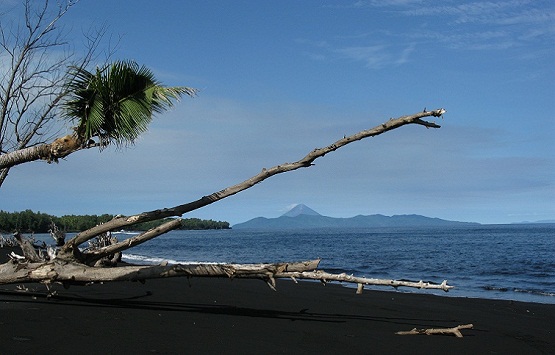Can you imagine a language in which different words for ‘buy’ are used depending on how many objects one is buying? Or a language in which when speaking of ‘us’ one can make a distinction between who is meant by ‘we': me and her, but not you or me and you, but not her? The Austronesian language Daakaka is one of many such languages. It is spoken on an island of Ambrym in Vanuatu (Oceania). Besides Daakaka, there are five other languages spoken on that island, which is roughly the size of the Isle of Man.
Vanuatu is the most linguistically diverse country in the world: 230,000 inhabitants of this small island state speak 106 languages. Why is that in Vanuatu there are so many languages whereas in the whole of Europe only less than 250 of them are spoken? Find out what the main reasons for the uneven geographic distribution of the languages of the world are in the Book of Knowledge (Chapter 1).
What does Daakaka sound like? Click here to listen to a Daakaka story about a kingfisher and a rat: Daakaka-Emiotungan-Jo
Want to know what happens in the story? Find Daakaka on the Interactive Map and learn more about this interesting language!
You can watch a series of short films Wer spricht noch Daakaka (‘Who still speaks Daakaka’) and see what everyday life on Ambrym is like and listen to researchers speak about life and work with a community of speakers of an endangered language (in German).
Interested in language documentation? Read about it in the Book of Knowledge (Chapter 10).
Further information and resources
More information on the Ambrym Documentation Project can be found here: The Ambrym Dobes Project.
You can also browse the DoBeS Archive for more recordings and samples of the language.

